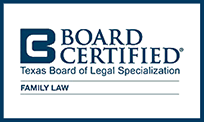


Comprehensive Estate Administration Services in Dallas
Secure Your Legacy & Protect Your Family's Future
Following every major life event, such as divorce, a new will may be necessary to address one’s new legal status or new family dynamic. Because death is invitable, you should make plans regarding how your estate and belongings will be distributed after your death. Pre-planning allows you to take control of the welfare of your heirs. A will, or a trust, can give you the peace of mind that your property divided according to your wishes.
Prepare for your future today. We can help you with:
- Simple wills
- Simple estates
- Powers of attorney
- Medical powers of attorney
- HIPAA authorizations
- Directives to physicians
- Living wills
If you executed a Last Will & Testament before your divorce, it is essential that you obtain an updated Last Will & Testament to reflect the significant change in your marital status. The lawyers at The Branch Law Firm in Dallas are experienced in drafting the detailed documents that you need to ensure that your property goes to your lawful heirs.
Call (469) 299-5944 to schedule an initial consultation with our lawyers.

The Opinions That Matter Most
See What Our Clients Have to Say
-
""Mrs Branch is very knowledgeable about Family Law""
Mrs. Branch is very knowledgeable about Family Law, and was able to correct my previous attorney's numerous mistakes. She strives to help you focus on issues that matter the most. I would recommend the Branch Law Firm to anyone going through a divorce.- D.S. -
"Fast Responses to Emails and Phone Calls"
The Branch team was amazing to work with. Ms. Betsy and her team were very diligent and on top of their game. Fast responses to emails and phone calls. I definitely recommend them if you are going through a suit affecting parent-child relationship. I will definitely use their services again.- Jackeline -
"Caring and Professional"
What a caring and professional office, with a wonderful reputation that follows them and it shows.- Rosie
Commonly Asked Questions
How can I make sure my will is valid in Texas?
What happens if I die without a will in Texas?
Understanding Intestate Succession in Texas
In Texas, death without a will is called intestate. If you do not have a last will and testament, the state law decides who inherits your estate and how your possessions are distributed.
What Sets Us Apart From The Rest?
Experienced, Compassionate, and Results-Driven Representation for Your Family & Estate Law Needs.
-
Board Certified Family Attorney
-
Empathetic, Trustworthy and Professional
-
We Put Our Clients First
-
Focused on Positive Results
-
Personalized Strategy for Each Client's Needs
-
Trusted Reputation in the Community

Contact Our Dallas Estate Planning Attorneys
You deserve a compassionate, knowledgeable attorney to answer your questions and advise you on complex legal issues, explain your rights, and take you through each step of the process during your time of grief. Contact the estate planning and probate attorneys in Dallas at The Branch Law Firm when you need experienced counsel on your side. We help with estate planning and probate in Rockwell and the surrounding areas.
Call (469) 299-5944 now to schedule an appointment at our firm or contact us online.

[2].1908161312550.jpg)






